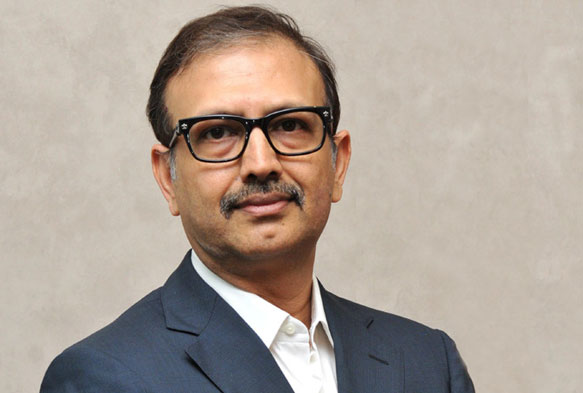
Note From President Vineet Bhatnagar
“A PERSON OR A SMALL TEAM, COMMITTED TO A CAUSE BIGGER THAN THEMSELVES, CAN ACHIEVE ABSOLUTELY ANYTHING.”
The word commitment kept coming up in my mind as I listened to Santosh Pise, founder of IndoScience Trust, and N Sudheer Kumar, Director of Capacity Building Public Outreach of ISRO, our speakers last Tuesday. Both use their
love of science to further its awareness in their individual and organisational capacities.
In living in accordance with commitments they have made to themselves, Sudheer Kumar, Santosh Pise and others like them also shape the lives of others as a consequence of their own commitment.
Have you ever had good intentions that you were unable to carry out? I am reminded of all my unfulfilled new year
resolutions, made in public (in front of my family) on new year’s day and broken in private for 364 days thereafter.
I struggled to comprehend this gap in my intention and outcome. Eventually, I realised, my resolutions were made as promises to others whereas they should have been commitments to myself.
A PROMISE IS AN AGREEMENT WE MAKE TO THE WORLD WHEREAS A COMMITMENT IS AN AGREEMENT WE MAKE TO OURSELVES.
A commitment is not an obligation; it is a psychological attachment to something one intends to continue. As it is
your attachment, it is internal to you.
However, a commitment is not merely a personal mission statement but a process that requires a plan. Funnily, having a plan grounds you to the commitment itself and is what differentiates it from other fleeting ideas or intentions.
So, let us pause. Consider that you are at a choice point and ask yourself – What are you deeply committed to? It does not matter if it’s big or small but search for an answer to this question and make a commitment, not a promise.
It is perfectly reasonable to have more than one commitment and also varying degrees of commitment. The moot point is – Is there a way for us to increase commitment towards things that matter more to us, and which shape our lives in a positive way?
There are 4 factors which, when considered together, offer a good predictive value about the degree of our commitments.
=> Treasures (joy)/ Troubles: Do the treasures / joys that you get from being committed to your goals outweigh the
trouble that you undergo to achieve them? If yes, then it is worth taking those troubles because what awaits you is
satisfaction. Satisfaction is a huge predictor of commitment. We are looking at the net of treasures less troubles.
=> Investment: We intuitively
know that to achieve
something of greater value,
we need to deeply invest
ourselves – our time, talent,
passion, hurt…. all these
are our contributions that
directly affect our level of
commitment.
=> Choices: Seldom do we have a single commitment; most of us could be committed to multiple things – jobs, family, relationship, social work etc. It is fair to say that more choices offer more potential commitments so, to have a high degree of commitment to a single thing, one has to prioritise and sometimes even let go of those commitments which come in the way of a more important commitment.
Commitment isn’t something we often discuss. Despite the lack of attention paid to it, when we choose to commit ourselves, we create the foundation and structure of our lives and lives of others who are in the fold of our
commitment.
A commitment shapes our life and is the foundation to great accomplishments. Santosh Pise & Sudheer Kumar are living proof.
— President Vineet Bhatnagar
